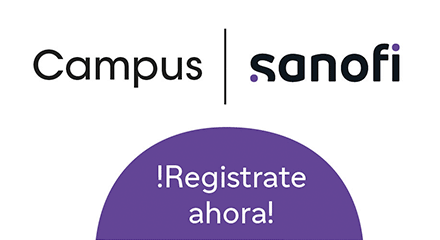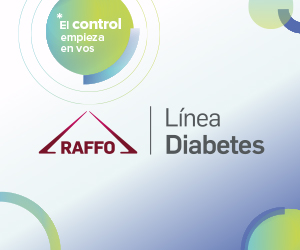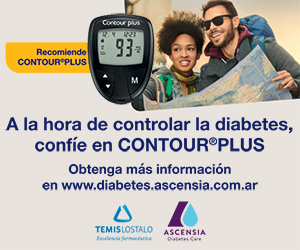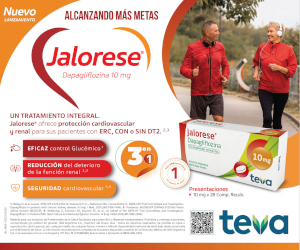Recommendations for clinical practice: hypoglycemia in people with diabetes mellitus
DOI:
https://doi.org/10.47196/diab.v56i2Sup.539Keywords:
hypoglycemia, diabetes mellitus, treatmentAbstract
Hypoglycemia due to treatment of diabetes mellitus (DM) is defined by a blood glucose value below 70 mg/dl, which can manifest itself by autonomic and neuroglycopenic symptoms, with short- and long-term consequences, such as impaired cognitive functions and increased cardiovascular risk, among others.
Hypoglycemia in people with DM1 is more frequent than in those with DM2. Factors that increase its risk are: delayed food intake, alcohol, intense exercise, fasting and autonomic neuropathy. On the other hand, inadvertent hypoglycemia is associated with an increased risk of severe hypoglycemia.
Children and older adults are a vulnerable group to these events that, in many cases, present symptoms that are difficult to distinguish. Hypoglycemia during pregnancy is associated with an increased risk of complications. Another important group to detect these episodes are hospitalized patients in order to reduce the morbimortality associated with them.
Quality of life is clearly affected in patients who suffer episodes of hypoglycemia, so it is essential to implement prevention strategies such as education, glycemic monitoring, dietary and exercise modifications, and medication adjustment.
Treatment, if there is no loss of consciousness, will be oral, otherwise, intravenous glucose or intramuscular glucagon will be used.
References
I. Balijepalli C, Druyts E, Siliman G, Joffres M, Thorlund K, Mills E. Hypoglycemia: a review of definitions used in clinical trials evaluating antihyperglycemic drugs for diabetes. Clin Epidemiol 2017;9:291-6. doi:10.2147/clep.s129268.
II. International Hypoglycaemia Study Group. Glucose concentrations of less than 3.0 mmol/L (54 mg/dL) should be reported in clinical trials: A joint position statement of the American diabetes association and the European association for the study of diabetes: Table 1. Diabetes Care 2017;40(1):155-7. doi: 10.2337/dc16-2215.
III. Ratner RE. Hypoglycemia: New definitions and regulatory implications. Diabetes Technol Ther 2018;20(S2):S2-50-S2-53. doi: 10.1089/dia.2018.0113.
IV. Deary I. Effects of hypoglycaemia on cognitive function. Hypoglycaemia and diabetes: Clinical and physiological aspects. Frier BM, Fisher M, Ed. Londres, Inglaterra: Hodder Arnold; 1993.
V. Cryer PE, Davis SN, Shamoon H. Hypoglycemia in diabetes. Diabetes Care 2003;26(6):1902-12. doi: 10.2337/diacare.26.6.1902.
VI. Bates DW. Unexpected hypoglycemia in a critically ill patient. Ann Intern Med 2002;137(2):110-6. doi: 10.7326/0003-4819-137-2-200207160-00009.
VII. Sommerfield AJ, Deary IJ, McAulay V, Frier BM. Short-term, delayed, and working memory are impaired during hypoglycemia in individuals with type 1 diabetes. Diabetes Care 2003;26(2):390-6. doi: 10.2337/diacare.26.2.390.
VIII. Beom JW, Kim JM, Chung EJ, Kim JY, Ko SY, Na SD, et al. Corrected QT interval prolongation during severe hypoglycemia without hypokalemia in patients with type 2 diabetes. Diabetes Metab J 2013;37(3):190-5. doi: 10.4093/dmj.2013.37.3.190.
IX. Desouza CV, Bolli GB, Fonseca V. Hypoglycemia, diabetes, and cardiovascular events. Diabetes Care 2010;33(6):1389-94. doi: /10.2337/dc09-2082.
X. McCrimmon RJ. Consequences of recurrent hypoglycaemia on brain function in diabetes. Diabetologia 2021;64(5):971-7. doi: 10.1007/s00125-020-05369-0.
XI. McCrimmon RJ, Ryan CM, Frier BM. Diabetes and cognitive dysfunction. Lancet 2012;379(9833):2291-9. doi: 10.1016/s0140-6736(12)60360-2.
XII. Cameron FJ, Northam EA, Ryan CM. The effect of type 1 diabetes on the developing brain. Lancet Child Adolesc Health 2019;3(6):427-36. doi: 10.1016/S2352-4642(19)30055-0.
XIII. Bednarik P, Moheet AA, Grohn H, Kumar AF, Eberly LE, Seaquist ER, et al. Type 1 diabetes and impaired awareness of hypoglycemia are associated with reduced brain gray matter volumes. Front Neurosci 2017;11. doi: 10.3389/fnins.2017.00529.
XIV. Åsvold BO, Sand T, Hestad KA, Bjørgaas MR. Quantitative EEG in type 1 diabetic adults with childhood exposure to severe hypoglycaemia: a 16 year follow-up study. Diabetologia 2011;54(9):2404-8. doi: 10.1007/s00125-011-2208-3.
XV. Zhou Y, Huang L, Zheng W, An J, Zhan Z, Wang L, et al. Recurrent nonsevere hypoglycemia exacerbates imbalance of mitochondrial homeostasis leading to synapse injury and cognitive deficit in diabetes. Am J Physiol Endocrinol Metab 2018;315(5):E973-86. doi: 10.1152/ajpendo.00133.2018.
XVI. International Hypoglycaemia Study Group. Hypoglycaemia, cardiovascular disease, and mortality in diabetes: epidemiology, pathogenesis, and management. Lancet Diabetes Endocrinol 2019;7(5):385-96. doi: 10.1016/S2213-8587(18)30315-2.
XVII. Goto A, Arah OA, Goto M, Terauchi Y, Noda M. Severe hypoglycaemia and cardiovascular disease: systematic review and meta-analysis with bias analysis. BMJ 2013;347(jul29 3):f4533. doi: 10.1136/bmj.f4533.
XVIII. Yeh JS, Sung S-H, Huang H-M, Yang H-L, You L-K, Chuang S-Y, et al. Hypoglycemia and risk of vascular events and mortality: a systematic review and meta-analysis. Acta Diabetol 2016;53(3):377-92. doi: 10.1007/s00592-015-0803-3.
XIX. Hwang JJ, Parikh L, Lacadie C, Seo D, Lam W, Hamza M, et al. Hypoglycemia unawareness in type 1 diabetes suppresses brain responses to hypoglycemia. J Clin Invest 2018;128(4):1485-95. doi: 10.1172/jci97696.
XX. Juvenile Diabetes Research Foundation Continuous Glucose Monitoring Study Group, Fiallo-Scharer R, Cheng J, Beck RW, Buckingham BA, Chase HP, et al. Factors predictive of severe hypoglycemia in type 1 diabetes: analysis from the Juvenile Diabetes Research Foundation continuous glucose monitoring randomized control trial dataset. Diabetes Care 2011;34(3):586-90. doi: 10.2337/dc10-1111.
XXI. Lin YK, Fisher SJ, Pop-Busui R. Hypoglycemia unawareness and autonomic dysfunction in diabetes: Lessons learned and roles of diabetes technologies. J Diabetes Investig 2020;11(6):1388-402. doi: 10.1111/jdi.13290.
XXII. Cryer PE. Death during intensive glycemic therapy of diabetes: mechanisms and implications. Am J Med 2011;124(11):993-6. doi: 10.1016/j.amjmed.2011.08.008.
XXIII. Patterson CC, Dahlquist G, Harjutsalo V, Joner G, Feltbower RG, Svensson J, et al. Early mortality in EURODIAB population-based cohorts of type 1 diabetes diagnosed in childhood since 1989. Diabetologia 2007;50(12):2439-42. doi: 10.1007/s00125-007-0824-8.
XXIV. Heinemann L, Freckmann G, Ehrmann D, Faber-Heinemann G, Guerra S, Waldenmaier D, et al. Real-time continuous glucose monitoring in adults with type 1 diabetes and impaired hypoglycaemia awareness or severe hypoglycaemia treated with multiple daily insulin injections (HypoDE): a multicentre, randomised controlled trial. Lancet 2018;391(10128):1367-77. doi: 10.1016/s0140-6736(18)30297-6.
XXV. Renard E, Ikegami H, Daher Vianna AG, Pozzilli P, Brette S, Bosnyak Z, et al. The SAGE study: Global observational analysis of glycaemic control, hypoglycaemia and diabetes management in T1DM. Diabetes Metab Res Rev 2021;37(7). doi: 10.1002/dmrr.3430.
XXVI. Feltbower RG, Bodansky HJ, Patterson CC, Parslow RC, Stephenson CR, Reynolds C, et al. Acute complications and drug misuse are important causes of death for children and young adults with type 1 diabetes: Results from the Yorkshire register of diabetes in children and young adults. Diabetes Care 2008;31(5):922-6. doi: 10.2337/dc07-2029.
XXVII. Skrivarhaug T, Bangstad H-J, Stene LC, Sandvik L, Hanssen KF, Joner G. Long-term mortality in a nationwide cohort of childhood-onset type 1 diabetic patients in Norway. Diabetologia 2006;49(2):298-305. doi: 10.1007/s00125-005-0082-6.
XXVIII. Gagnum V, Stene LC, Jenssen TG, Berteussen LM, Sandvik L, Joner G, et al. Causes of death in childhood-onset type 1 diabetes: long-term follow-up. Diabet Med 2017;34(1):56-63. doi: 10.1111/dme.13114.
XXIX. Gubitosi-Klug RA; DCCT/EDIC Research Group. The diabetes control and complications trial/epidemiology of diabetes interventions and complications study at 30 years: summary and future directions. Diabetes Care 2014;37(1):44-9. doi: 10.2337/dc13-2148.
XXX. Costa Gil JE, Linari MA, Pugnaloni N, Zambon FG, Pérez Manghi F, Rezzónico M; Grupo HAT. Hipoglucemia en pacientes con diabetes tipo 1 y tipo 2 en tratamiento con insulina. Resultados del Estudio HAT en Argentina. MEDICINA (Buenos Aires). 2017;77: 449-457.
XXXI. Skyler JS, Bergenstal R, Bonow RO, Buse J, Deedwania P, Gale EAM, et al. Intensive glycemic control and the prevention of cardiovascular events: implications of the ACCORD, ADVANCE, and VA diabetes trials: a position statement of the American Diabetes Association and a scientific statement of the American College of Cardiology Foundation and the American Heart Association: A position statement of the American diabetes association and a scientific statement of the American college of cardiology foundation and the American heart association. Circulation 2009;119(2):351-7. doi: 10.1161/CIRCULATIONAHA.108.191305.
XXXII. Whitmer RA, Karter AJ, Yaffe K, Quesenberry CP Jr, Selby JV. Hypoglycemic episodes and risk of dementia in older patients with type 2 diabetes mellitus. JAMA 2009;301(15):1565-72. doi: 10.1001/jama.2009.460.
XXXIII. DuBose SN, Weinstock RS, Beck RW, Peters AL, Aleppo G, Bergenstal RM, et al. Hypoglycemia in older adults with type 1 diabetes. Diabetes Technol Ther 2016;18(12):765-71. doi: 10.1089/dia.2016.0268.
XXXIV. Abraham MB, Jones TW, Naranjo D, Karges B, Oduwole A, Tauschmann M, et al. ISPAD Clinical Practice Consensus Guidelines 2018: Assessment and management of hypoglycemia in children and adolescents with diabetes. Pediatr Diabetes 2018;19:178-92. doi: 10.1111/pedi.12698.
XXXV. Juvenile Diabetes Research Foundation Continuous Glucose Monitoring Study Group. Prolonged nocturnal hypoglycemia is common during 12 months of continuous glucose monitoring in children and adults with type 1 diabetes. Diabetes Care 2010;33(5):1004-8. doi: 10.2337/dc09-2081.
XXXVI. Diabetes Control and Complications Trial Research Group; Nathan DM, Genuth S, Lachin J, Cleary P, Crofford O, et al. The effect of intensive treatment of diabetes on the development and progression of long-term complications in insulin-dependent diabetes mellitus. N Engl J Med 1993;329(14):977-86. doi: 10.1056/NEJM199309303291401.
XXXVII. Buckingham B, Block J, Burdick J, Kalajian A, Kollman C, Choy M, et al. Response to nocturnal alarms using a real-time glucose sensor. Diabetes Technol Ther 2005;7(3):440-7. doi: 10.1089/dia.2005.7.440.
XXXVIII. American Diabetes Association. 12. Older adults: standards of medical care in diabetes-2021. Diabetes Care 2021;44(Suppl 1):S168-79. doi: 10.2337/dc21-S012.
XXXIX. Freeman J. Management of hypoglycemia in older adults with type 2 diabetes. Postgrad Med 2019;131(4):241-50. doi: 10.1080/00325481.2019.1578590.
XL. LeRoith D, Biessels GJ, Braithwaite SS, Casanueva FF, Draznin B, Halter JB, et al. Treatment of diabetes in older adults: An endocrine society clinical practice guideline. J Clin Endocrinol Metab 2019;104(5):1520-74. doi: 10.1210/jc.2019-00198.
XLI. Action to Control Cardiovascular Risk in Diabetes Study Group; Gerstein HC, Miller ME, Byington RP, Goff DC Jr, Bigger JT, et al. Effects of intensive glucose lowering in type 2 diabetes. N Engl J Med 2008;358(24):2545-59. doi: 10.1056/NEJMoa0802743.
XLII. Rovira MG, Jawerbaum A, Glatstein L, Sucani S, Bertona C, Argerich I, et al. Recomendaciones para el manejo de las pacientes con diabetes pregestacional. Rev Soc Argent Diabetes 2018;51(4):153. doi: 10.47196/diab.v51i4.43.
XLIII. Seaquist ER, Anderson J, Childs B, Cryer P, Dagogo-Jack S, Fish L, et al. Hypoglycemia and diabetes: a report of a workgroup of the American Diabetes Association and the Endocrine Society. Diabetes Care 2013;36(5):1384-95. doi: 10.2337/dc12-2480.
XLIV. Grosembacher LA, Puchulu F, Fretes O, Giunta J, González C, Umpierrez G. Guía de recomendaciones para el manejo de la hiperglucemia en pacientes hospitalizados. Federación Argentina de Sociedades de Endocrinología (FASEN) 2016. Rev Arg Endocrinol Metab 2018;55(34-40).
XLV. Cruz P. Inpatient hypoglycemia: The challenge remains. J Diabetes Sci Technol 2020;14(3):560-6. doi: 10.1177/1932296820918540.
XLVI. Kana-Kadayakkara D, Balasubramanian P, Araque K, Davis K, Javed F, Niaki P, et al. Multidisciplinary strategies to treat severe hypoglycemia in hospitalized patients with diabetes mellitus reduce inpatient mortality rate: Experience from an academic community hospital. PLoS One 2019;14(8):e0220956. doi: 10.1371/journal.pone.0220956.
XLVII. Singh LG, Levitt DL, Satyarengga M, Pinault L, Zhan M, Sorkin JD, et al. Continuous glucose monitoring in general wards for prevention of hypoglycemia: Results from the glucose telemetry system pilot study. J Diabetes Sci Technol 2020;14(4):783-90. doi: 10.1177/1932296819889640.
XLVIII. Kana-Kadayakkara D, Balasubramanian P, Araque KA, Davis K, Javed F, Niaki P, et al. Correction: Multidisciplinary strategies to treat severe hypoglycemia in hospitalized patients with diabetes mellitus reduce inpatient mortality rate: Experience from an academic community hospital. PLoS One 2019;14(9):e0222475. doi: 10.1371/journal.pone.0222475.
XLIX. Ritholz MD, Jacobson AM. Living with hypoglycemia. J Gen Intern Med 1998;13(12):799-804. doi: 10.1046/j.1525-1497.1998.00243.x.
L. Barendse S, Singh H, Frier BM, Speight J. The impact of hypoglycaemia on quality of life and related patient-reported outcomes in type 2 diabetes: a narrative review: Hypoglycaemia QoL Type 2 DM review. Diabet Med 2012;29(3):293-302. doi: 10.1111/j.1464-5491.2011.03416.x.
LI. Gordon J, Beresford-Hulme L, Bennett H, Tank A, Edmonds C, McEwan P. Relationship between hypoglycaemia, body mass index and quality of life among patients with type 1 diabetes: Observations from the DEPICT clinical trial programme. Diabetes Obes Metab 2020;22(5):857-65. doi: 10.1111/dom.13972.
LII. Wu C, Ge Y-L, Zhang X-Y, Liu M-C, Heng C-N, Zhang L-Y, et al. The influence of hypoglycemia on the specific quality of life in type 2 diabetes mellitus: a comparative cross-sectional study of diabetics with and without hypoglycemia in Xi’an, China. Health Qual Life Outcomes 2021;19(1):151. doi: 10.1186/s12955-021-01790-0.
LIII. Huang M-C, Hung C-H, Chen C-Y, Hung W-W, Liang H-L. Factors associated with quality of life in patients with diabetic hypoglycaemia. J Clin Nurs 2020;29(9-10):1704-11. doi: 10.1111/jocn.15183.
LIV. Yuksel M, Bektas H. Complıance wıth treatment and fear of hypoglycaemıa ın patıents wıth type 2 dıabetes. J Clin Nurs 2021;30(11-12):1773-86. doi: 10.1111/jocn.15736.
LV. Chatwin H, Broadley M, Valdersdorf Jensen M, Hendrieckx C, Carlton J, Heller S, et al. “Never again will I be carefree”: a qualitative study of the impact of hypoglycemia on quality of life among adults with type 1 diabetes. BMJ Open Diabetes Res Care 2021;9(1):e002322. doi: 10.1136/bmjdrc-2021-002322.
LVI. Tasende C, Rubio JA, Álvarez J. Traducción al español, adaptación y validación del Cuestionario de miedo a la hipoglucemia en adultos con diabetes tipo 1 de la Comunidad de Madrid. Endocrinol Diabetes Nutr 2018;65(5):287-96. doi: 10.1016/j.endinu.2017.12.003.
LVII. American Diabetes Association. 6. Glycemic targets: standards of medical care in diabetes-2021. Diabetes Care 2021;44(Suppl 1):S73-84. doi: 10.2337/dc21-S006.
LVIII. Hermanns N, Heinemann L, Freckmann G, Waldenmaier D, Ehrmann D. Impact of CGM on the management of hypoglycemia problems: Overview and secondary analysis of the HypoDE study. J Diabetes Sci Technol 2019;13(4):636-44. doi: 10.1177/1932296819831695.
LIX. Bolinder J, Antuna R, Geelhoed-Duijvestijn P, Kröger J, Weitgasser R. Novel glucose-sensing technology and hypoglycaemia in type 1 diabetes: a multicentre, non-masked, randomised controlled trial. Lancet 2016;388(10057):2254-63. doi: 10.1016/s0140-6736(16)31535-5.
LX. Charleer S, Mathieu C, Nobels F, De Block C, Radermecker RP, Hermans MP, et al. Effect of continuous glucose monitoring on glycemic control, acute admissions, and quality of life: A real-world study. J Clin Endocrinol Metab 2018;103(3):1224-32. doi: 10.1210/jc.2017-02498.
LXI. Mezquita-Raya P, Reyes-García R, Moreno-Pérez O, Muñoz-Torres M, Merino-Torres JF, Gorgojo-Martínez JJ, et al. Endocrinol Nutr 2013;60(9):517.e1-517.e18. doi: 10.1016/j.endonu.2013.04.005.
LXII. Bhattacharyya OK, Estey EA, Cheng AYY, Canadian Diabetes Association 2008. Update on the Canadian Diabetes Association 2008 clinical practice guidelines. Can Fam Physician. 2009;55(1):39-43.
LXIII. Ly TT, Maahs DM, Rewers A, Dunger D, Oduwole A, Jones TW. Assessment and management of hypoglycemia in children and adolescents with diabetes. Pediatr Diabetes 2014;15(S20):180-92. doi: 10.1111/pedi.12174.
Downloads
Published
How to Cite
Issue
Section
License
Copyright (c) 2022 on behalf of the authors. Reproduction rights: Argentine Diabetes Society

This work is licensed under a Creative Commons Attribution-NonCommercial-NoDerivatives 4.0 International License.
Dirección Nacional de Derecho de Autor, Exp. N° 5.333.129. Instituto Nacional de la Propiedad Industrial, Marca «Revista de la Sociedad Argentina de Diabetes - Asociación Civil» N° de concesión 2.605.405 y N° de disposición 1.404/13.
La Revista de la SAD está licenciada bajo Licencia Creative Commons Atribución – No Comercial – Sin Obra Derivada 4.0 Internacional.
Por otra parte, la Revista SAD permite que los autores mantengan los derechos de autor sin restricciones.


































